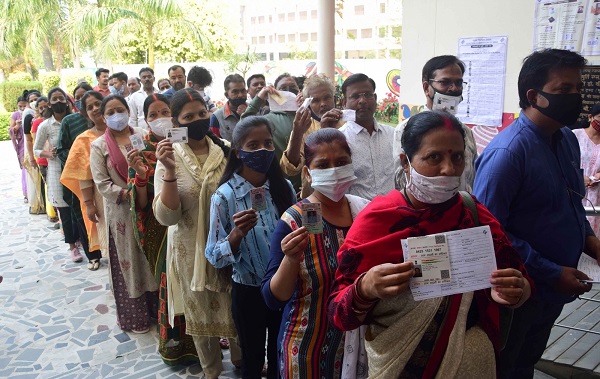

Prem Singh
(Asian independent) The assembly elections of five, which lasted for about a month, are going to end. Only last phase of the elections is left in Uttar Pradesh to be held on March 7. Much of the debate during the elections was lost to accusations and counter-accusations between the parties and leaders. In the debate on election issues that appeared in newspapers, magazines, online, social media and TV channels, no discussions were heard on the New Education Policy (NEP). I personally inquired and also asked Professor Anil Sadgopal for confirmation whether any national or regional political party participating in the elections has raised the issue of the NEP in its manifesto? To the best of our knowledge this did not happen. If any party has made the NEP an issue, then it must come out with its version. So that there can be an experience of some satisfaction in this matter.
22 farmer organizations affiliated to the Samyukt Kisan Morcha (SKM) participated in the Punjab Assembly elections by forming a political party namely Samyukta Samaj Morcha (SSM). But the issue of the NEP was not included in its manifesto or other documents/speeches etc. The SKM leadership played an active role in the elections with an appeal to defeat the BJP. The NEP was not an issue even in their statements/press briefings. In Punjab, the debate between the Congress and Aam Aadmi Party (AAP) on Punjab model of education and Delhi model of education had started even before the assembly elections. But that superficial debate remained confined to the level of ‘my school/classroom is smarter than your school/classroom’! In such a futile cross-examination of each-other there was hardly any scope for a serious discussion on a subject like education and a contentious issue like the NEP.
Sanket Upadhyay held a program on ND TV India among the youth of Uttar Pradesh on the question of employment and education around the fourth phase of elections in UP. Sanket Upadhyay organizes good and pleasant debates among the people while doing ground reporting. He himself does not agitate during the debate, nor do the people of any side who argue with him get agitated. There were youth participants from BJP, SP, BSP and Congress in the program. All the participants were wearing the colours of their respective parties. An SP participant was wearing a red cap of ‘Samajwadi Chhatra Sabha’. He was giving a tough fight to the BJP participants by speaking loudly and without his turn! However, no one raised the issue of the NEP in the whole debate held among the youth of UP on the question of education and employment. In the program, the front of Congress was taken care of by the young ladies. One of them mentioned just half a sentence against the NEP while trying to put forward her point of view in the debate. But neither the moderator nor any other participant allowed the issue of the NEP to come into the debate.
During the elections, no student or youth organization at the national and regional level raised the demand to protest against or review of the NEP. Similar was the situation with the teachers’ organizations across the country. The budget for the year 2022-2023 was presented in Parliament during the election campaign. Prime Minister Narendra Modi emphasized that specific provisions have been made in the budget in order to effectively implement the NEP. He, while quoting the NEP, also clarified that online/digital education would be the guarantee of quality education for all in the country. No party/leader busy in election campaign made the NEP a subject of his/her statement or speech taking a cue from the Prime Minister’s speech in the Parliament.
During the Corona pandemic, all the universities of the country were kept close for two years. Meanwhile, the government, along with the university officials, campaigned non-stop using online platforms in favour of the NEP. One of the reasons behind the closure of universities, especially the University of Delhi, was the belief that as soon as the universities opened, protests would start against the NEP. There are about hundred colleges/institutions associated with Delhi University situated in a single city. Apart from Delhi University, there are five more universities here. Delhi is also the capital city. Therefore, the demonstrations taking place here are echoed across the country. All the universities in Delhi were opened during the assembly elections. But there was no demonstration seen so far against the NEP.
I have made a critique of the NEP elsewhere discussing its merits and demerits. The NEP will have a decisive impact on the education system of India in future. There is only one question here. Have we accepted privatization/marketisation/







